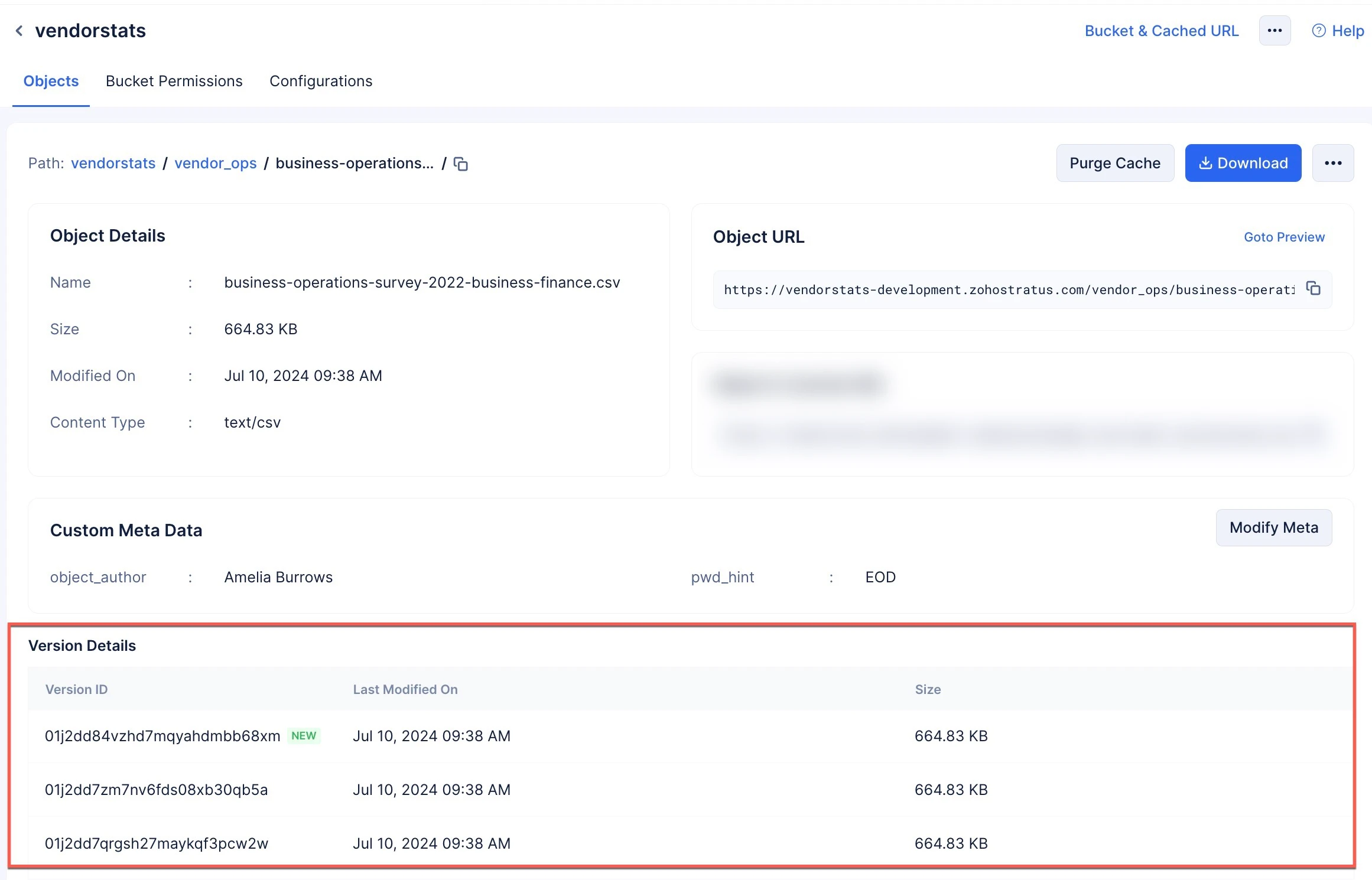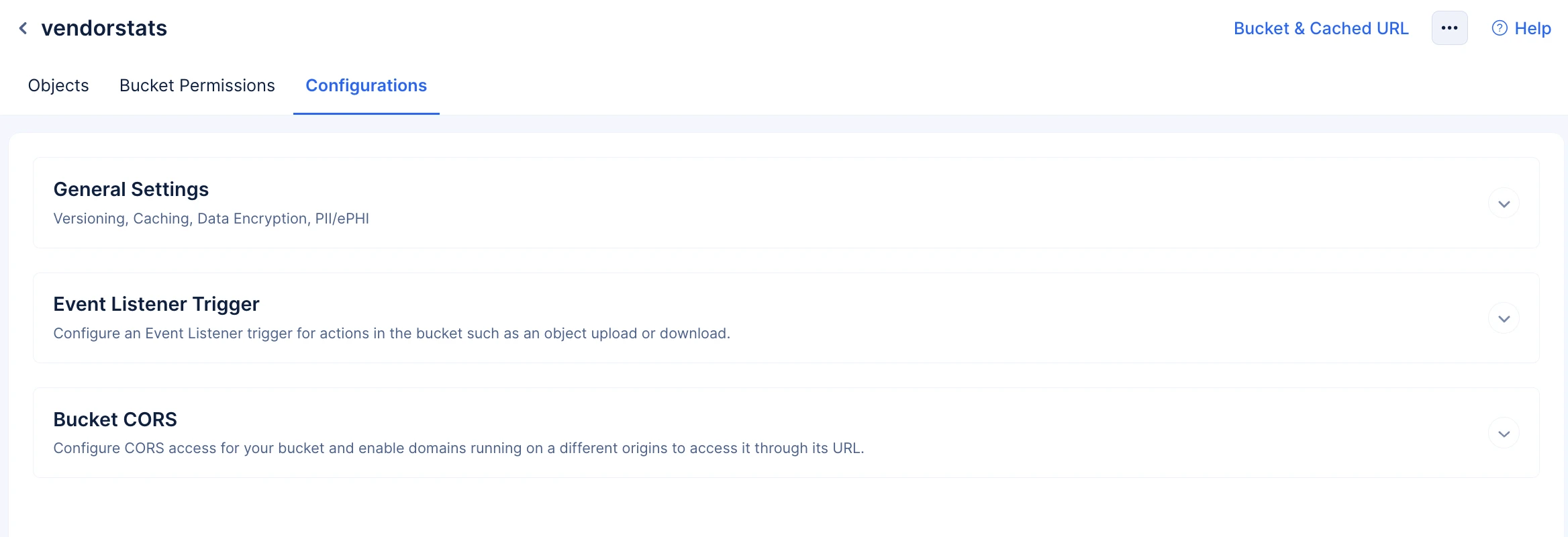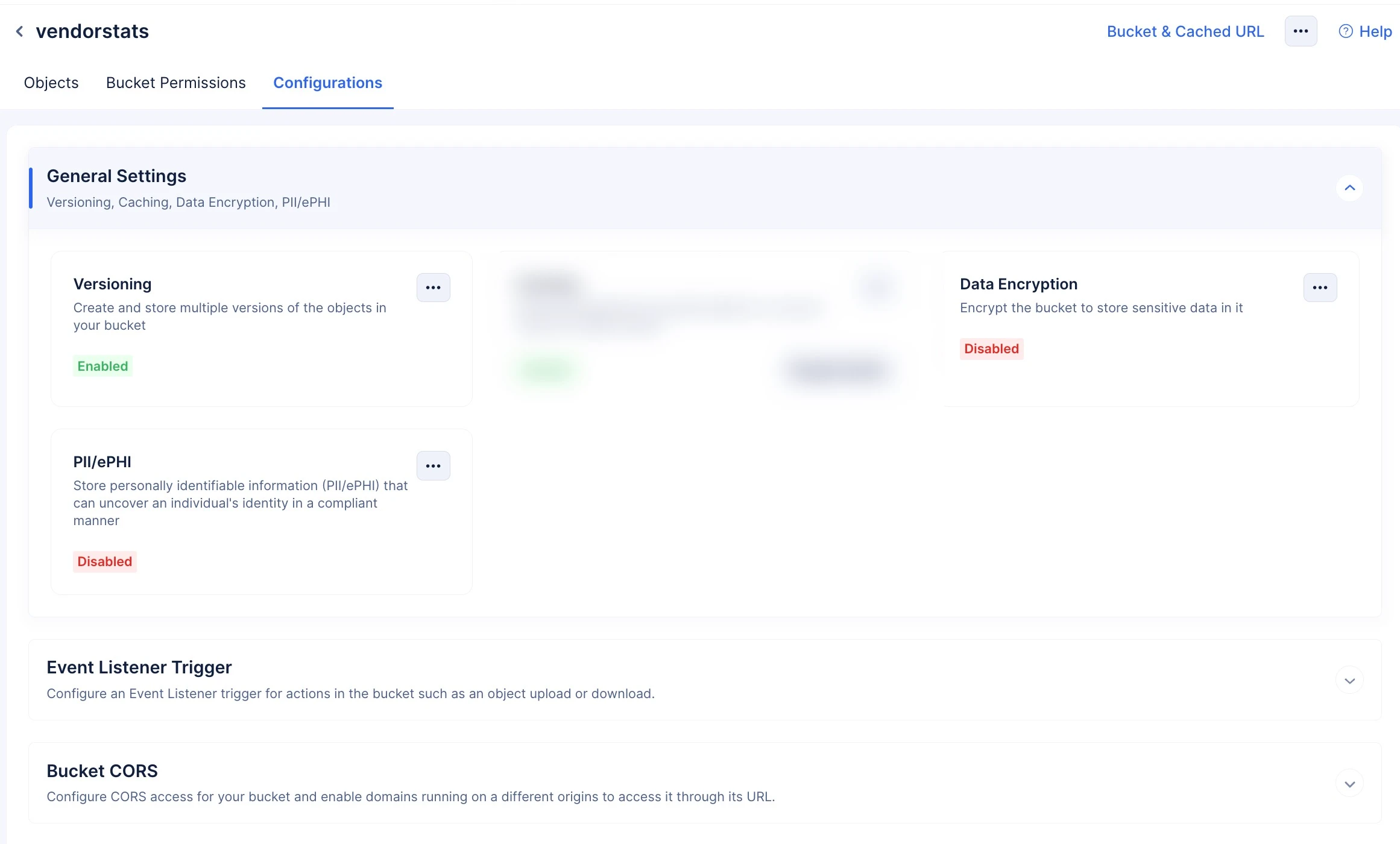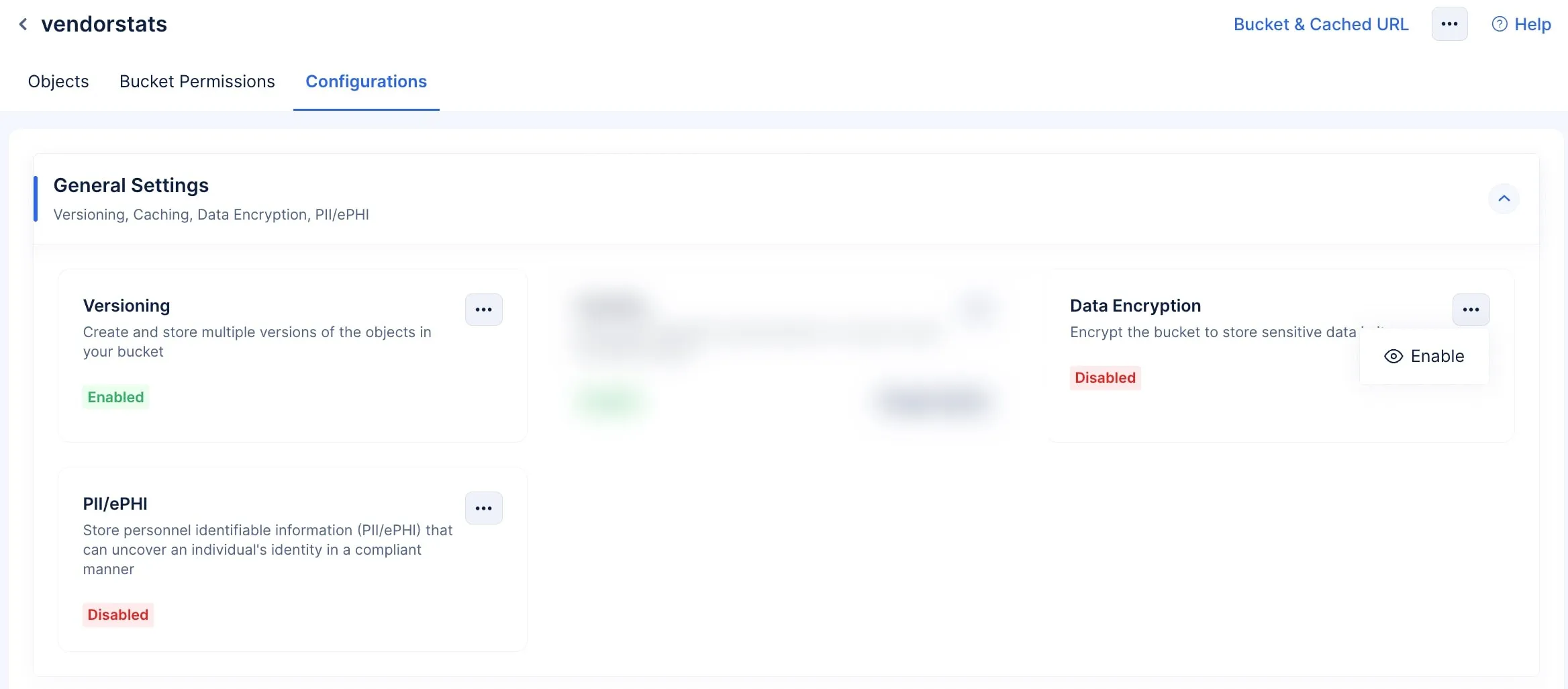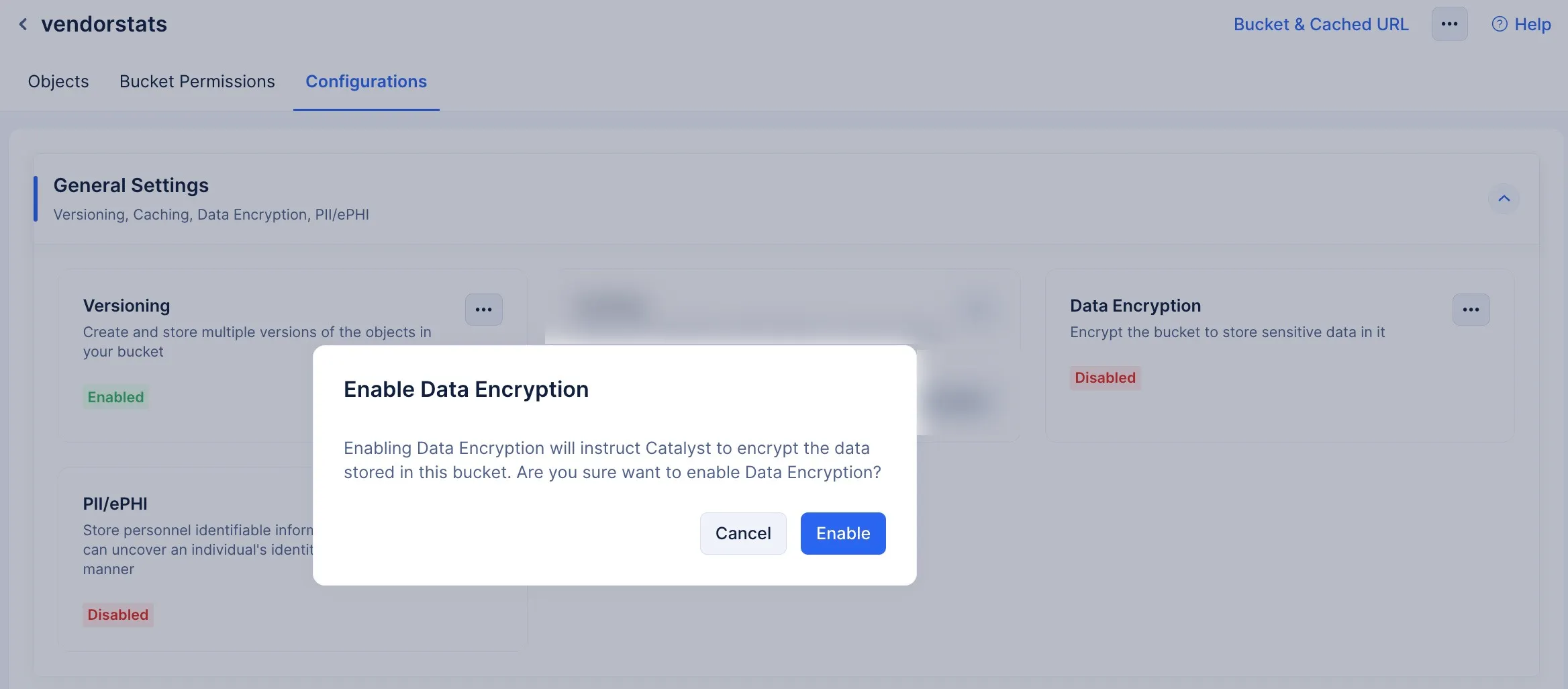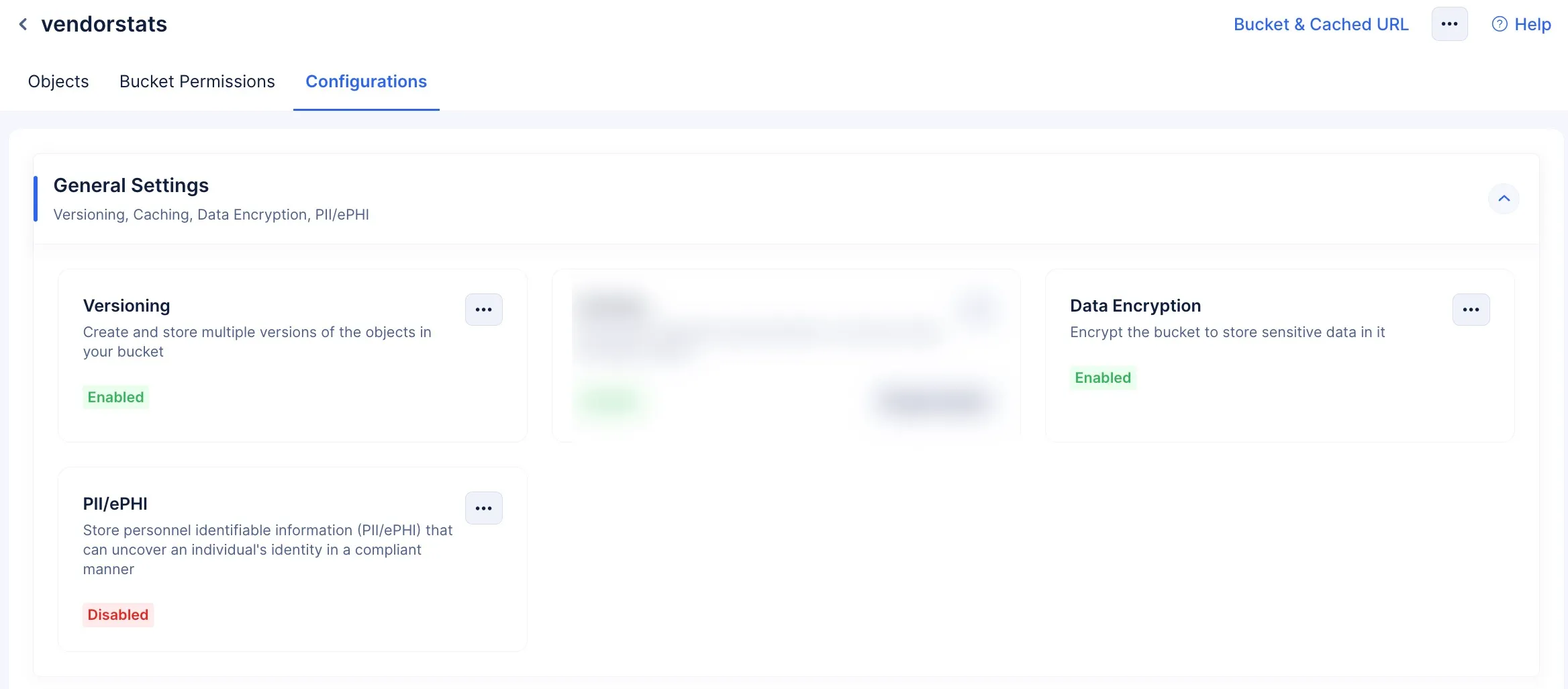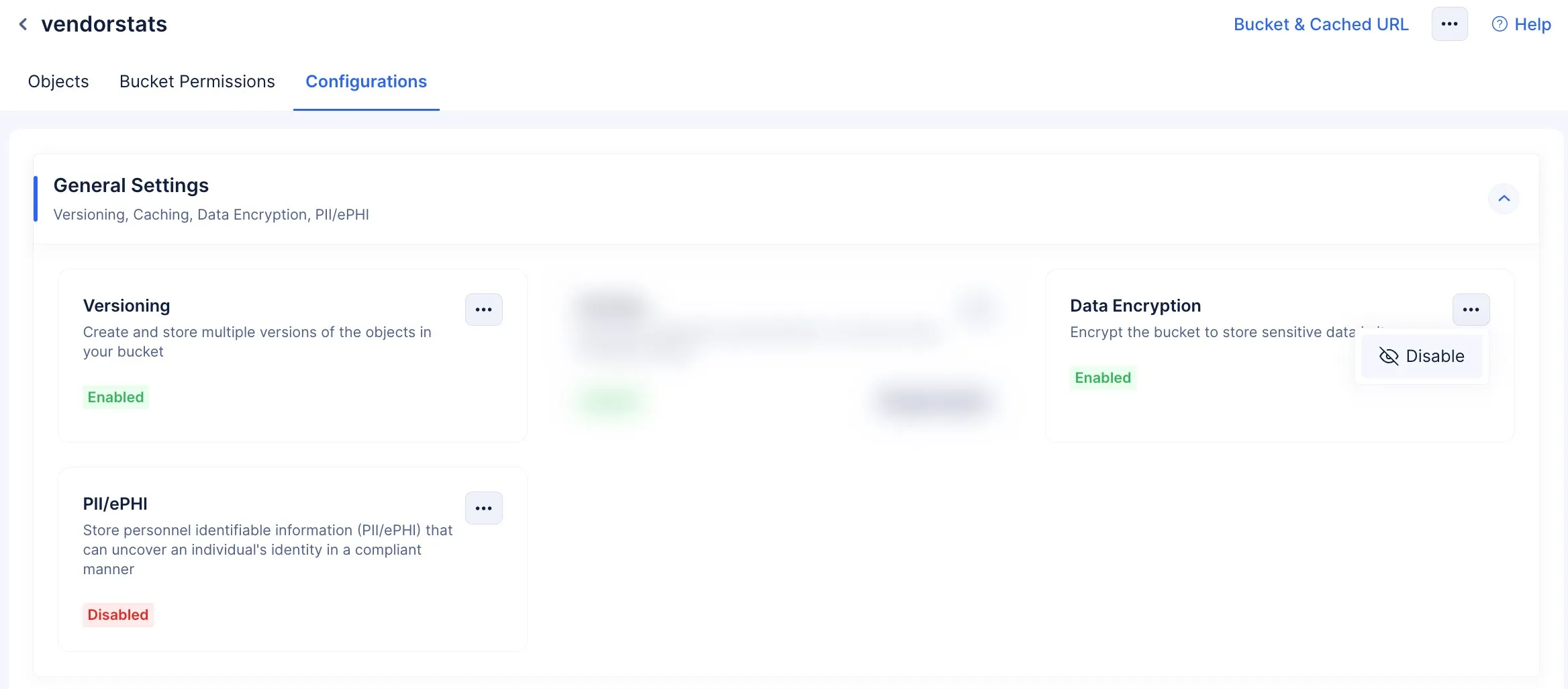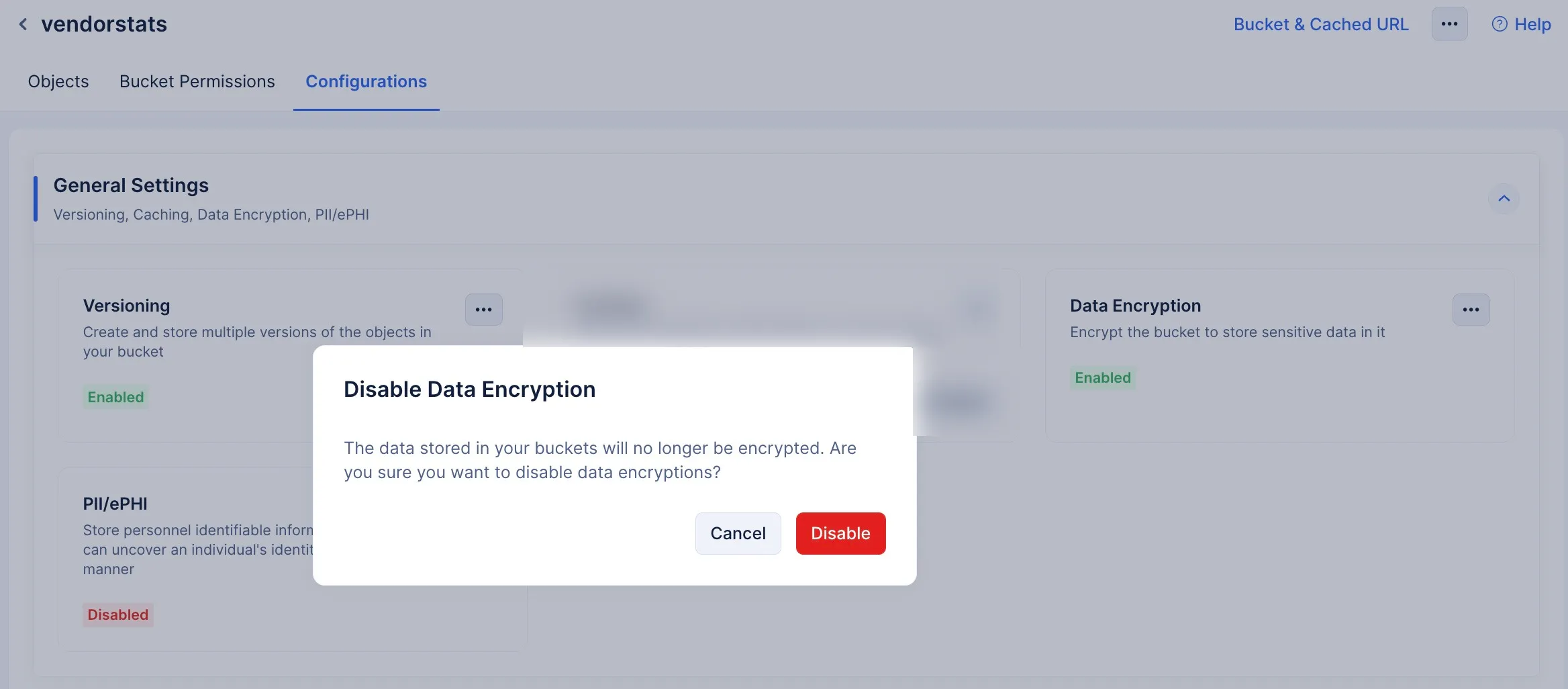General Settings
While you are creating and after you create a bucket, you can configure the following bucket settings:
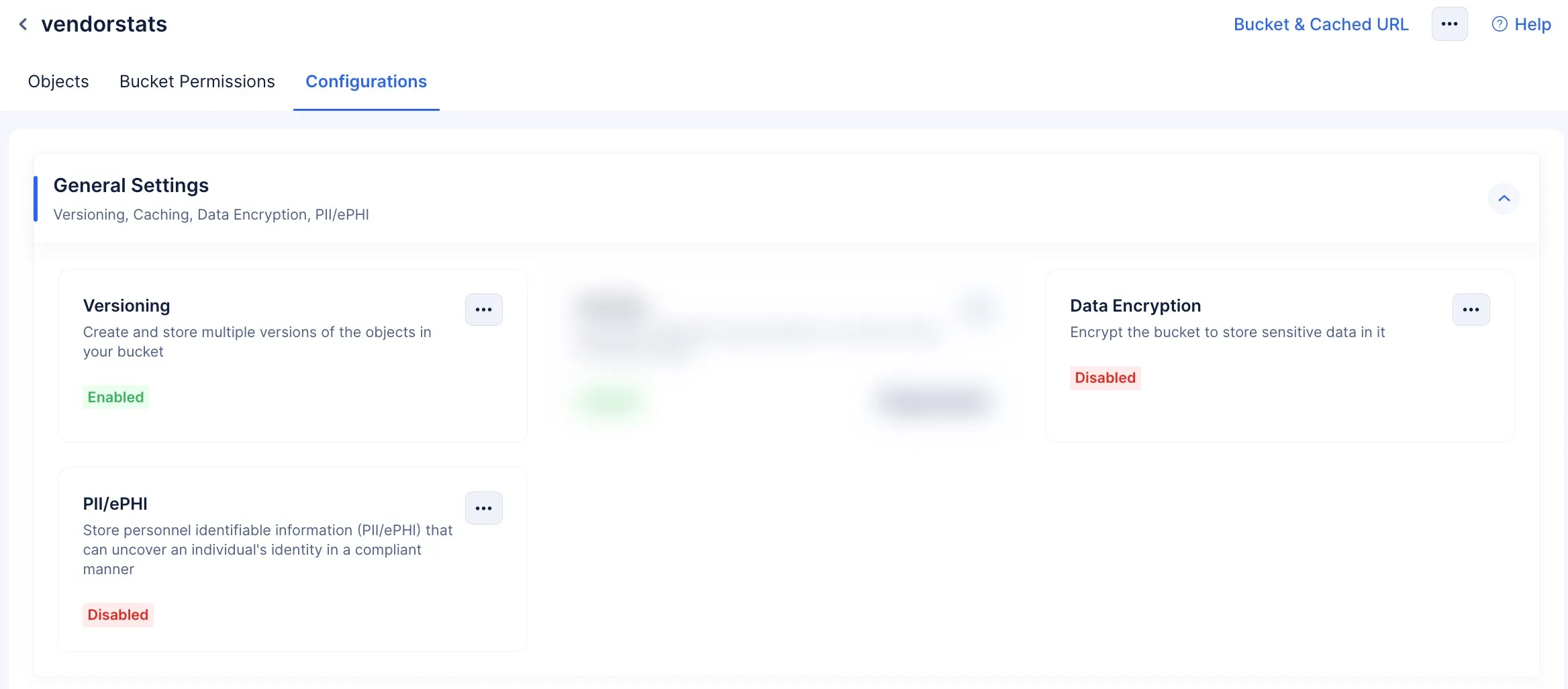
Versioning
- This setting allows you to store multiple versions of any object in your bucket.
- When you upload multiple version of the object, Catalyst will generate a unique versionId for each of them upon upload.
- Every latest version that you upload will become the default version of the object. The previous uploaded versions will need to be accessed using their unique versionId.
- Consider you disable Versioning after uploading versions of the object when Versioning was enabled. All the object versions that had been uploaded so far will exist. However, If you attempt to upload a version of the same object under this condition (Versioning is disabled), the following behavior is expected:
- The original object will be permanently deleted and replaced with the object you are uploading (latest object).
- You will only be able to access the latest object and the saved versions of the object (using their respective versionId).
- The diagrams below illustrate Versioning behavior:
- When Versioning is enabled.
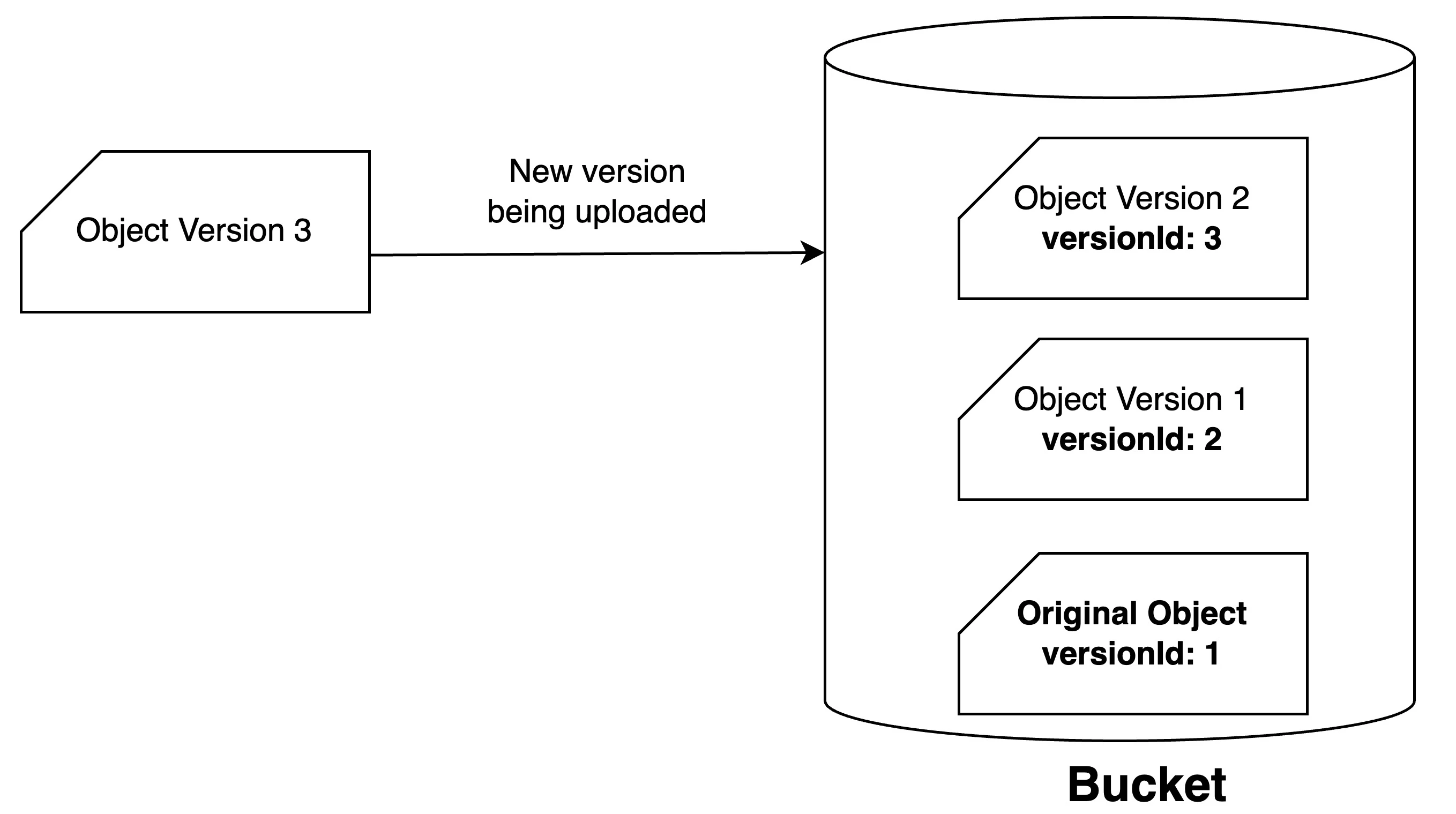
Every new version of the object will be stored in the bucket and will be referred using its unique versionId generated by Stratus. - When Versioning is disabled.
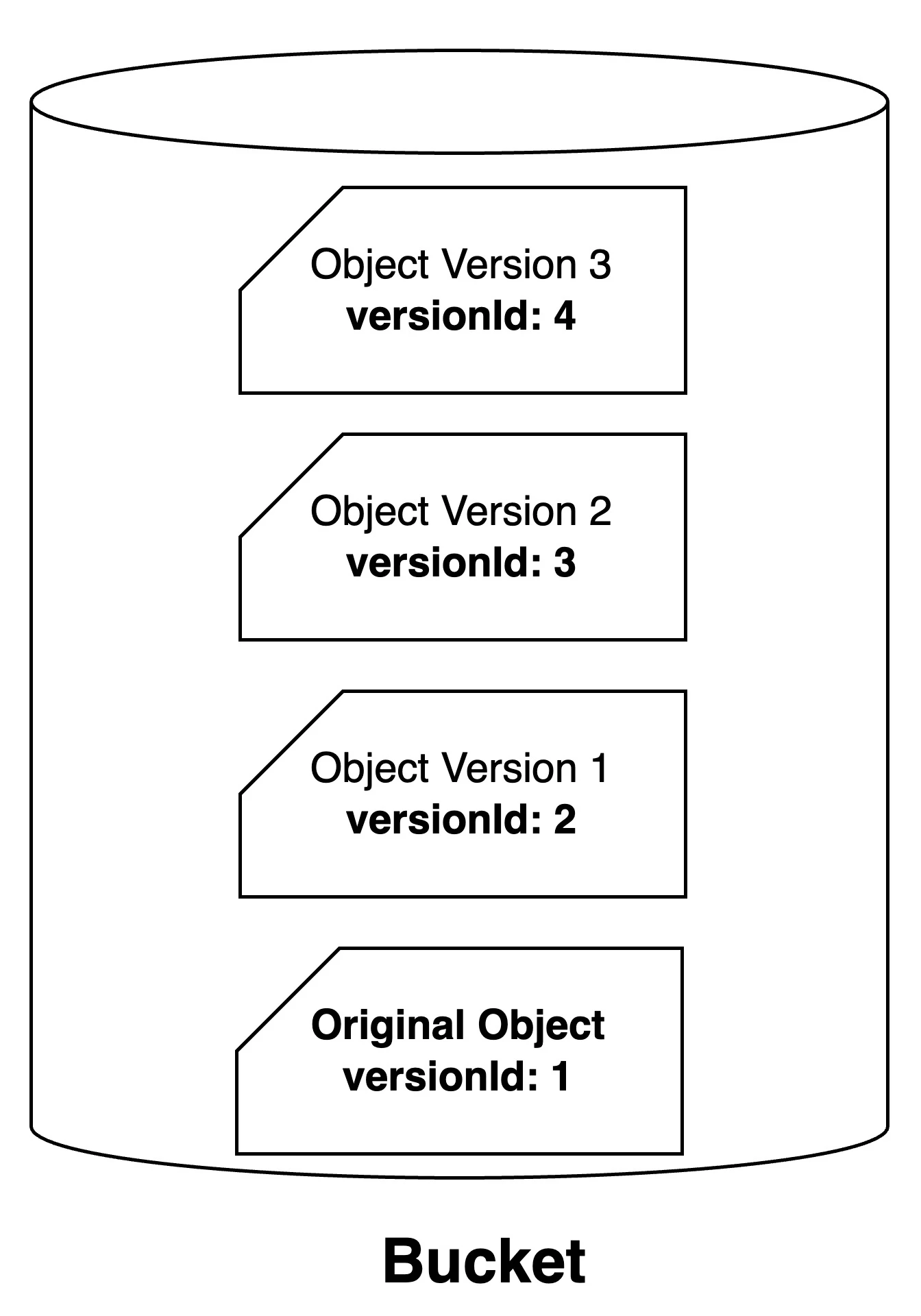
The original object and its versions will be retained in the bucket. - When you upload an object version after Versioning has been disabled.
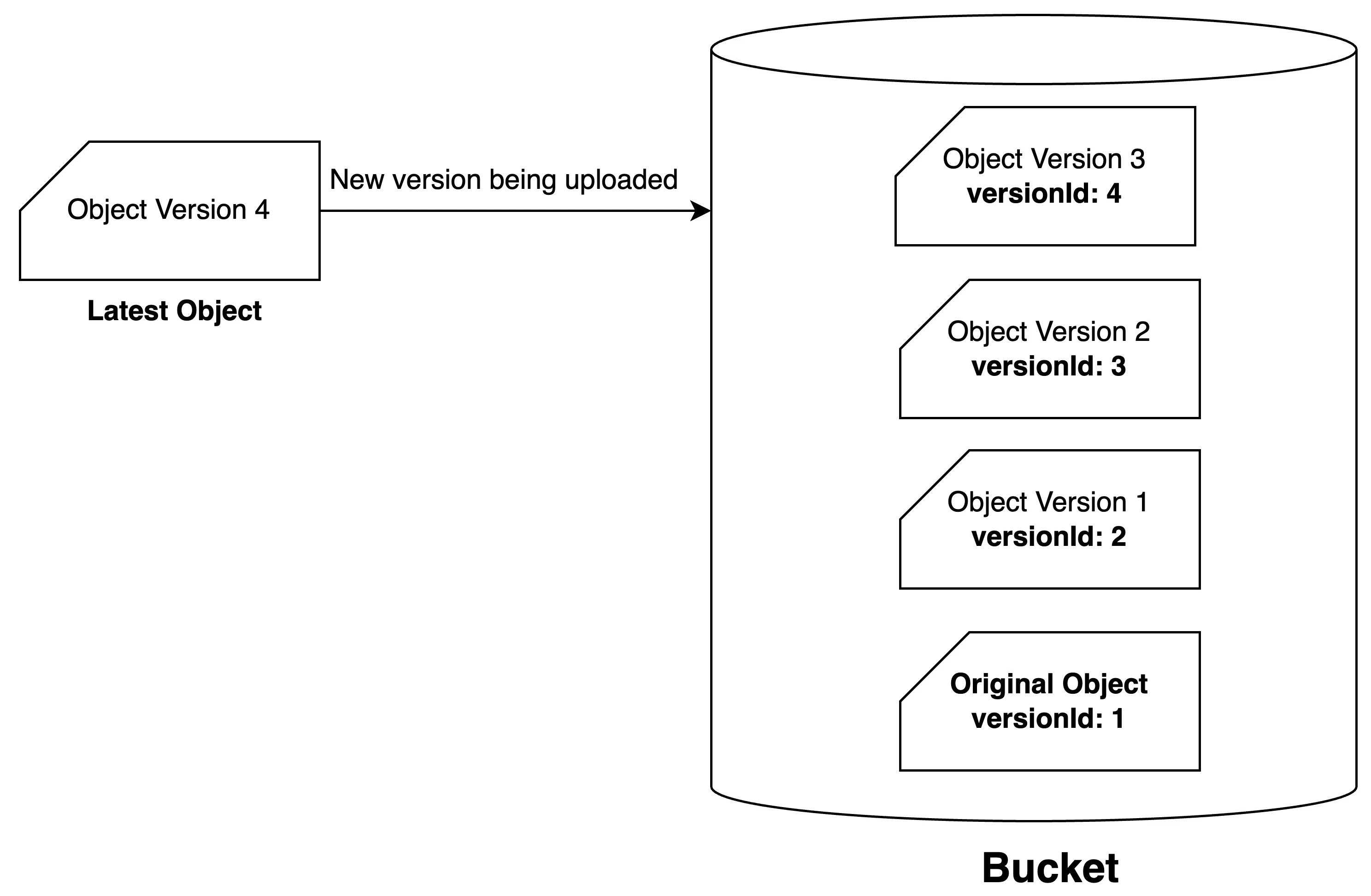
The original object will be permanently deleted and replaced with the object you are uploading (latest object), and you will only be able to access the latest object using the Object URL, and the saved versions (referred using their respective versionId) of the object.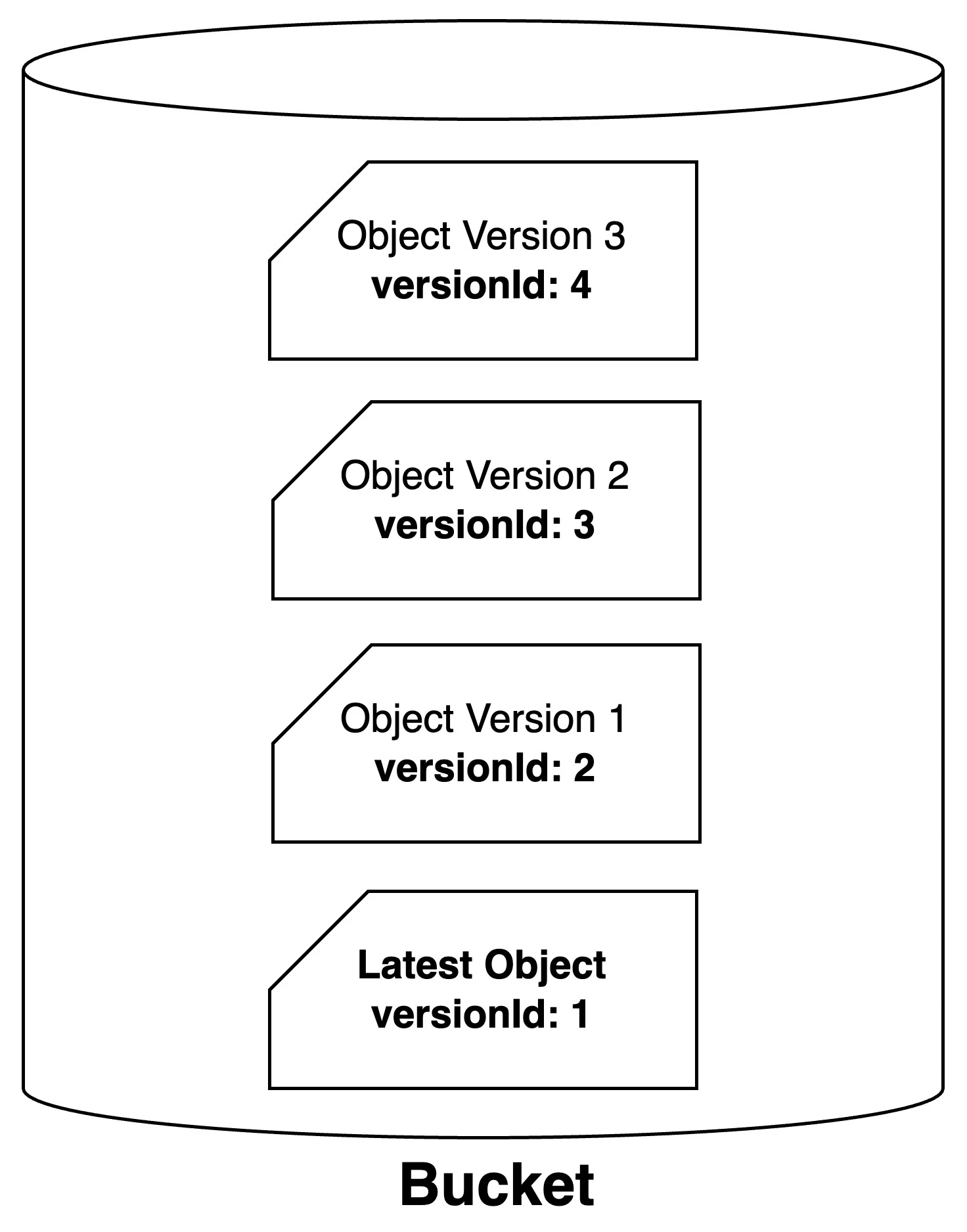
- When Versioning is enabled.
Data Encryption
- You can enable this bucket settings to encrypt the data present in the bucket.
- Stratus follows both encryption at rest and encryption at flight protocols.
- Stratus applies the Advanced Encryption Standard (AES-256) encryption technique to encrypt the data in the bucket.
PII/ePHI
- You need to enable this setting if the bucket is going to contain sensitive or personally identifiable data. Doing so, will ensure you are storing these types of sensitive data in compliance with HIPAA standards.
- When this setting is enabled, the object’s operational logs will be present in the Application Logs present in the Audit Logs section.
Enable a Bucket’s Setting
Note: By default, all these bucket settings will be disabled. Even when you migrate your bucket from a third-party platform to Stratus, these configurations will have to be re-configured.
To enable one of the settings:
The required setting will be enabled.
Disable a Bucket’s Setting
To disable a required setting:
The required setting will be disabled.
Last Updated 2025-07-08 15:34:18 +0530 IST
Yes
No
Send your feedback to us
Skip
Submit
